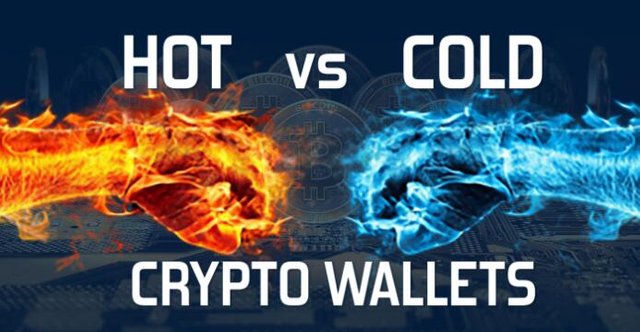Hot Wallet and Cold Wallet - the best way to store digital currency

When it comes to Bitcoin's wallet, the key point to consider is its access to the Internet. This feature divides wallets into two broad categories: hot wallets and cold wallets. It's like a bank depositing some money on a bank's cashier so that customers can access it at any time, while the rest of the money is stored in the vault. In other words, hot wallets and cold wallets are security measures used by exchange platforms to protect client funds.
The Advantages of
Hot Wallets Hot wallets are always connected to the Internet in some way, so they are more likely to be stolen. But hot wallets also have important advantages that cannot be ignored. For example: they allow software developers to adopt their own applications. It can easily extract cryptocurrencies without requiring access to private keys like third-party users who support "exchanges." The Crypto Agent application developed by Match-Trade Technologies is an integrated encryption exchange wallet for the Coinmatch platform. It prevents hackers from exploiting their own custom protection methods, such as different confirmation procedures to increase withdrawals and two-step logins. But this is not the only factor that brings the hot wallet closer to the security level of the cold wallet. The entire blockchain technology is built around decentralized ideas. What is more suitable than multiple chains? When all its meaning is to eliminate trust by requiring two or even three keys to get funding, it is almost impossible for hackers to steal them.
What kind of wallet is the exchange itself?
An exchange is a special type of hot wallet that customers do not own. This means that they fully entrust the funds to the exchange operators and have no effect on any of their cryptocurrency funds. However, if each customer wants to use the benefits provided by the private key, such as receiving forked tokens or managing ICO tokens, they can create a so-called hot wallet on their mobile phone or desktop. The most convenient wallets we recommend are Exodus (for desktops) and Jaxx (for desktops and mobile devices) or Coinomi (also for mobile devices), which even support 64 cryptocurrencies. However, hot wallets are not recommended for beginners because they are more susceptible to cybercrime. The protection of the exchange wallet is much more advanced because of the cooperation with the trustee (such as a law firm that ensures that the key does not fall into the wrong hands).
Is a cold wallet a better choice for storing cryptocurrencies?
A paper wallet (a type of cold wallet) is a printed version of the public address and private key. Since they are all generated offline, this is the best way to protect your cryptocurrency from hackers. Just remember to check your computer for viruses before generating the key, download the Bitaddress generator from the GitHub website, and run Bitaddress.org.html.
Since the public address is used to send funds to the wallet, the wallet does not need to be connected to the Internet. However, the private key allows the password to be extracted from the wallet, so it is necessary to keep the connection open. The cold wallet will never connect to the Internet. Once you use the private key in the paper wallet on the Internet, you can no longer use it as a cold wallet. So in real life, it is very difficult to keep only paper wallets. In order to eliminate this trouble, some companies invented the "hardware wallet." The most important feature of their becoming "Bitcoin Secure Storage" is that they do not require a private key to leave the device when they return a signed message. The stored cryptocurrency is protected by a microchip, which in turn is protected by a digital password. The most used hardware wallets in the cryptocurrency community are Ledger and Trezor, which are protected with BIP-44 seed backup in the event of a device failure.
How to manage hot and cold wallets? It
is very dangerous to put all the money in a hot wallet because its security is uncertain, but it is really inconvenient to use only a cold wallet. For cryptocurrency exchanges, a good practice is to never store too much money in a popular wallet. The Pareto principle seems to be applicable, but with some limitations. You can put 20% of your money in a hot wallet and 80% in a cold wallet, because you always need to check your liquidity. A suitable exchange will process the withdrawal request immediately, but it will only be truly satisfactory if the exchange uses an integrated and well-designed hot wallet with sufficient funds, otherwise it may be delayed. Otherwise, all excess liquidity will be transferred to the “cold wallet”.